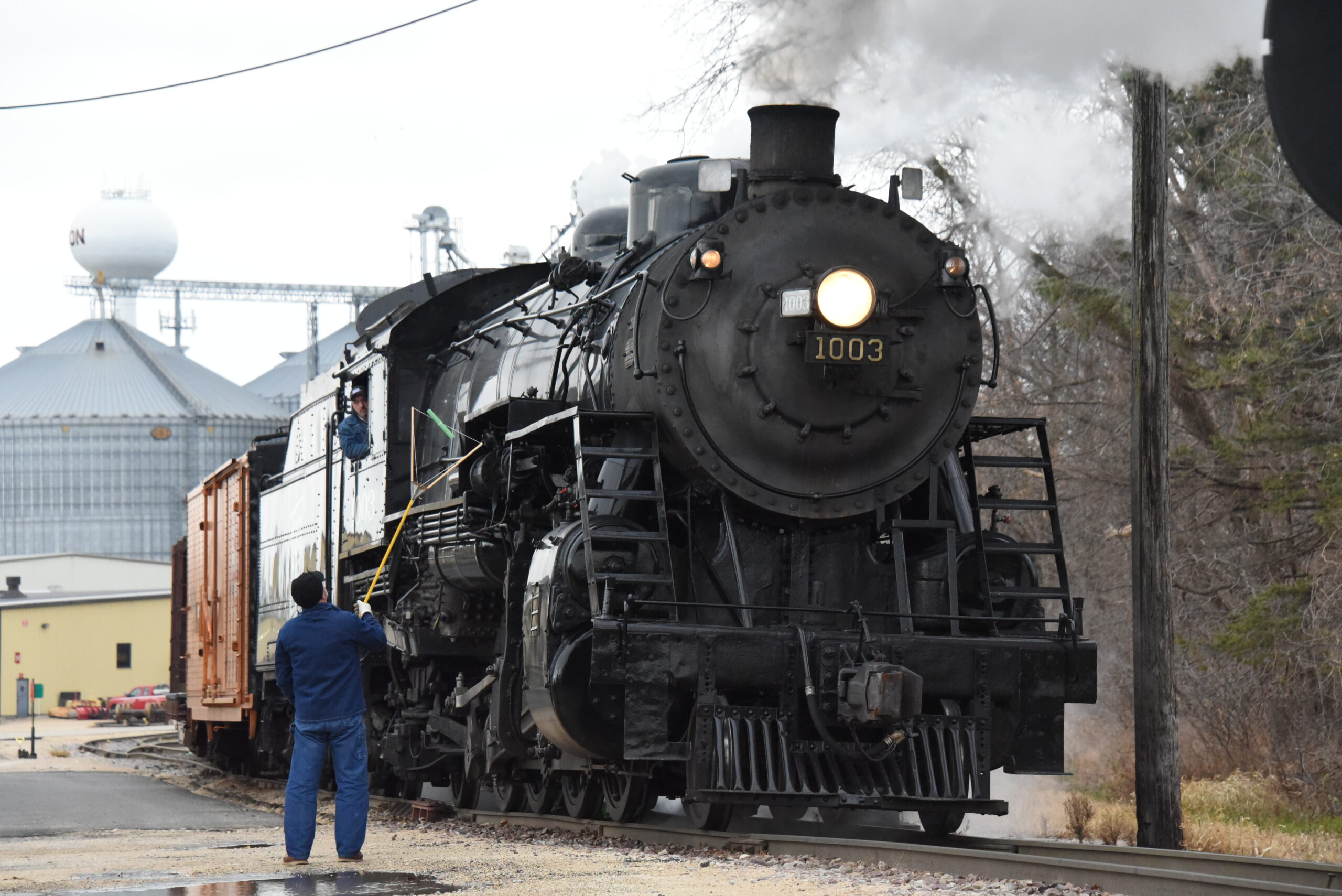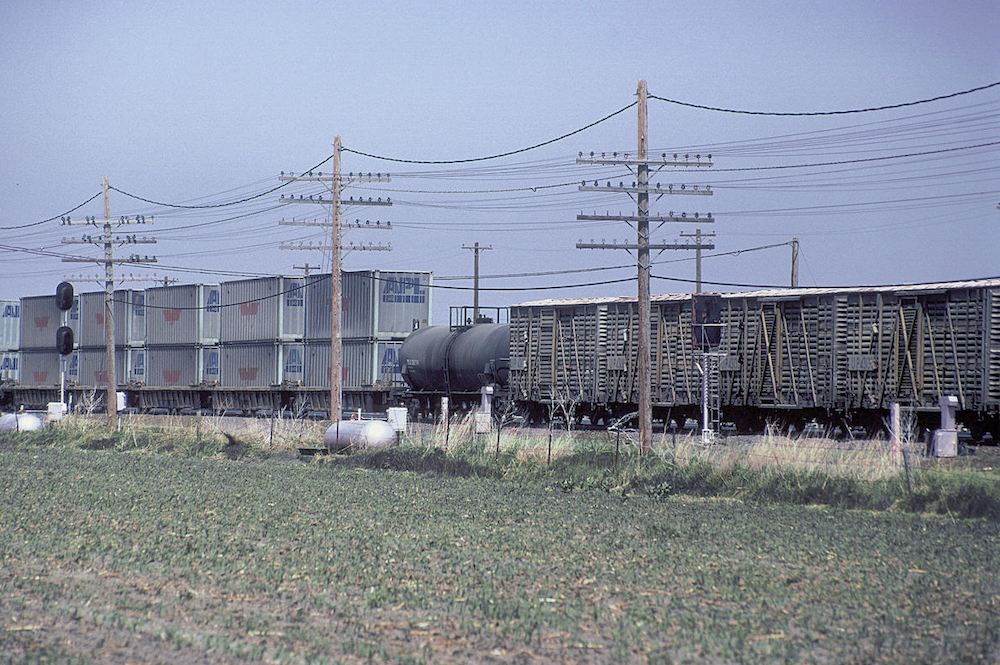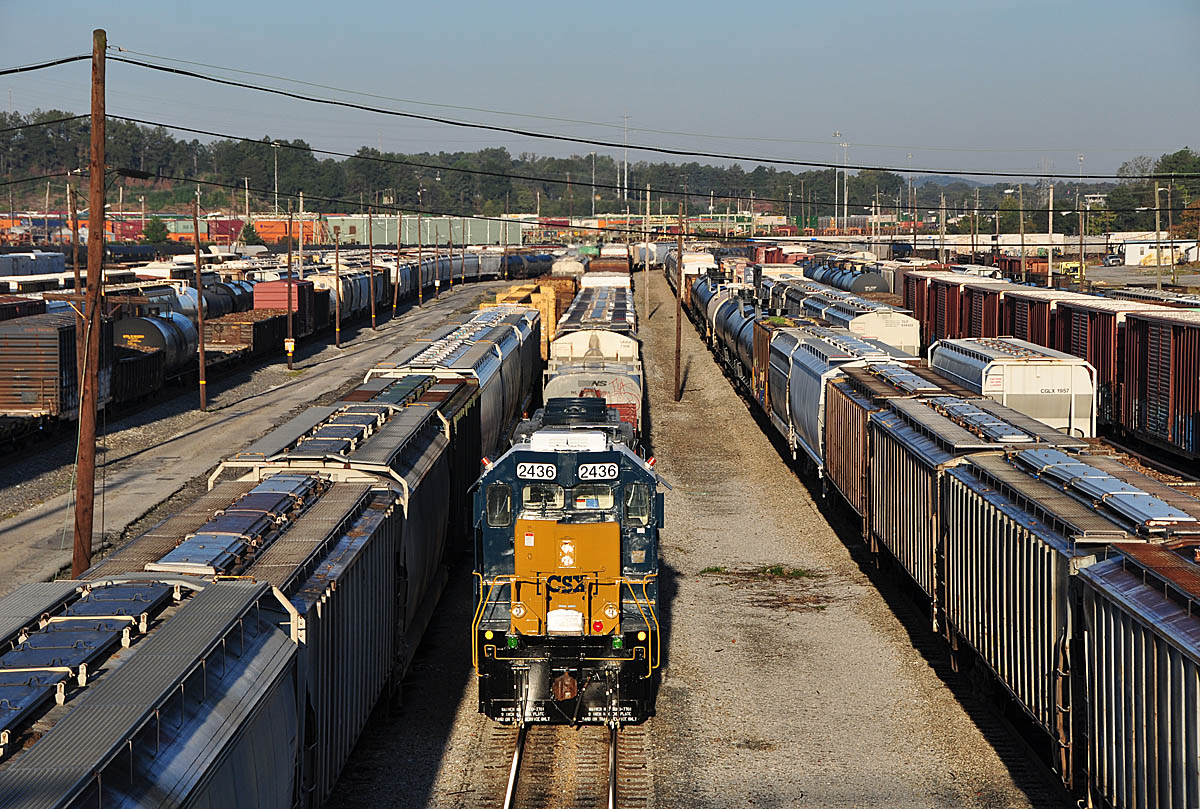Railroad lingo

What is the railroad’s lingo? Utilized mostly by railroaders, it’s a way of speaking among co-workers that involves using railroad terminology, jargon, slang, or argot. Common lingo can vary from one group of individuals to another.
Not born of this world, I’ve struggled to understand some of the language the railroad professionals use from within the industry. Being intrigued by it however, this is a small and incomplete list of what I’ve encountered and discovered so far that I find to be fun and educational to read.
- Bake a cake: Building up steam.
- Battleship: A very large locomotive
- Bend the rail: Throwing a switch.
- Big hook: Crane capable of righting a derailed locomotive.
- Brass collar: An official representative of the railroad
- Caboose hop: A lone caboose being hauled by an engine with no train in between.
- Clown wagon: The caboose of a train.
- Crossbuck: The X-shaped warning sign at a grade crossing.
- Deadhead: 1.) Paid crews moving on trains (not performing service) from one terminal to another. 2.) A railroad employee traveling on a pass. 3.) A locomotive hauled by another.
- Derail: When a train leaves the tracks.
- Died: Ran out of hours to work.
- Dog Catcher/Dog Catch/Caught: Rested crews sent out to rescue — or “dog-catch” — the crews that have run out of legal working hours (resulting in being dog caught).
- Double-stack: When cargo containers are stacked on top of another.
- Drag: A slow freight.
- Elevator: A grain storage tower capable of loading grain directly into railway cars.
- Foamer: A rail fanatic that enjoys watching, photographing, and/or videotaping trains. May collect railroad memorabilia.
- Fusee: A flare used to signal that a stopped train is ahead.
- Frogs: Metal flangeways that connect the track to switches, diamonds, cross-overs, etc. They guide wheels from one track structure to another essentially.
- Goat (or yard goat): A yard switcher.
- Greenie or green: New hire.
- Hand bomber: A manually-fired steam locomotive.
- Hauling the mail: Fast passenger train or train moving really fast.
- Hole: A siding, as in “waiting in the hole” for another train.
- Hoghead or hogger: Locomotive engineer.
- Hooping up an order: An old process used by station agents to convey train orders to crews on passing trains.
- Manifest train: A scheduled merchandise freight train.
- Meet: When one train passes another.
- On his air: Pumping up the airbrakes on a train.
- ON spot: Yard crew parking locomotive between moves. while conductor gets another switchlist.
- Piggyback: A truck trailer transported on a railroad flat car.
- Piglet: Inexperienced locomotive engineer
- Reefer: A refrigerated boxcar.
- Soup ticket: List of cars and tons.
- Siding: Track that is alongside the main and secondary track for meeting or passing trains.
- Swinger: An added member to the regular crew.
- Switching: Freight cars being moved between two close locations.
- To get high behind: To get moving in a hurry.
- Waybill: A document covering a shipment.
- Waycar: Another name for a caboose.
- Wye: A triangle of railroad track used in lieu of a turntable for turning trains.
Note some of this lingo may be railroad- or area-specific. According to Michael Sawyer, author of “An engineer’s life” column, when he worked in Southern California out of Bakersfield, the ATSF folks used “Patched” in place of Dog Caught and said “Hogged,” short for “Hogged on the Law,” for dying. Let me know (in the comments below) if there are any words/phrases that you think should be added to this list!
For another article on phrases/words used, check out “Five mind-blowing railroad words” and “Learning the lingo at Flagstaff.”
For more word lists, visit the following links:














Freight car basics: Friction bearings
By Carl Swanson | May 6, 2025. endmrw0506251638
OH,MY: “high ball” AND the derivation of same.
Same as green aspect on signal. As fast as authorized speed. Long ago before even semaphors (sp?) a ball hung low for slow speed. If the ball was at the top of mast….hi-ball = as fast as authorized speed.
gandy dangers = MOW workers ….derivation ??
cornfield meet = wreck …usually where the wreck ended up
hot box ….see news article before this article
endmrw0506251626
Beans time – going to have lunch.
Waycar, another name for caboose.
Hauling the mail. Fast passenger train or train moving really fast.
ON spot. yard crew parking locomotive between moves. while conductor gets another switchlist.
On his air. Pumping up the airbrakes on a train.
Thank you! I will add these.
I think I heard someone refer to a “green” or inexperienced locomotive engineer as a “piglet”
I worked with a brakeman who called the new hires “Greenie”. This brakeman was a comedian in class by himself. We ended up calling not only the new hires this, but also co-workers who screwed up. This was in the greater Seattle area.